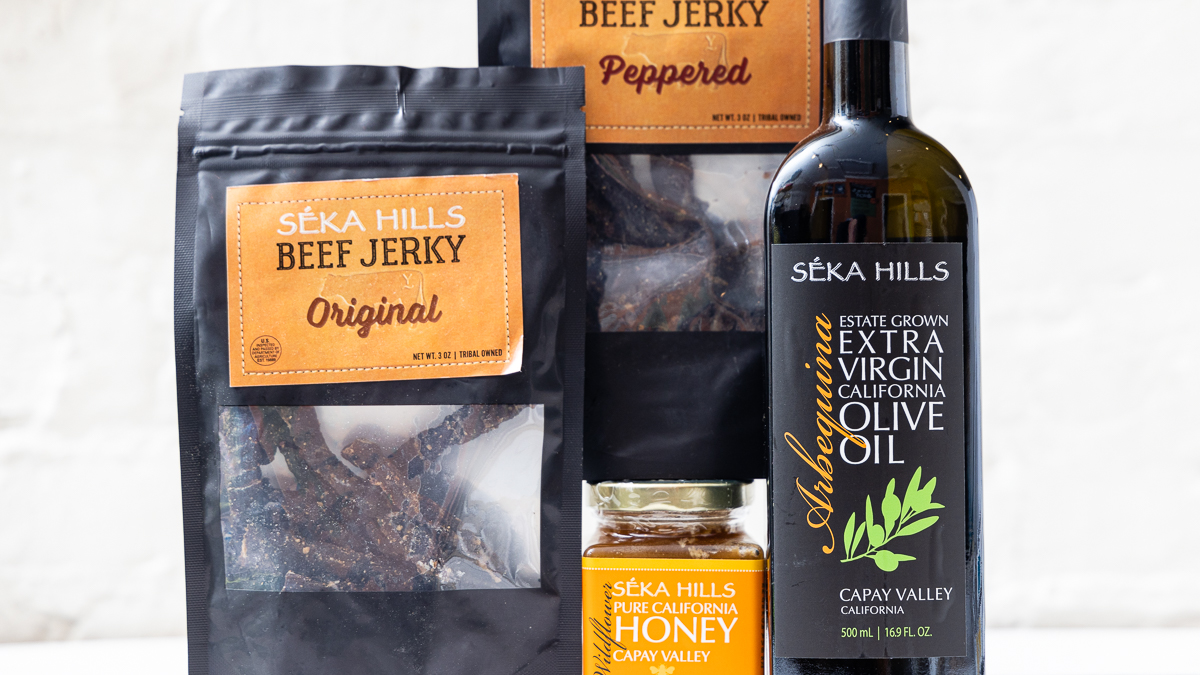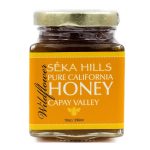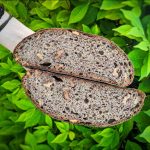Specialty Foods from the Yocha Dehe Wintun Nation
The Origins of Séka Hills
The Séka Hills story is one of longevity and perseverance. Séka Hills is owned and managed by the Yocha Dehe Wintun Nation, who inhabited the land in Northern California’s Capay Valley for more than 4,000 years. By the mid-1800s, they were 20,000 members strong, thriving in the microclimate located between the Napa and Sacramento valleys. They were forced off their land first by the Spanish, then later by the U.S. government, and by the early 1900s, their numbers had dwindled to less than a hundred.
In the 1940s, the tribe petitioned for and was granted access to more fertile land in the Capay Valley—the land they had formerly inhabited and thrived on. Over the years, the Yocha Dehe Wintun Nation has been able to purchase more land in the surrounding area and is now managing 25,000 acres of land. Their approach to the land they oversee is focused on protecting and preserving the natural balance in the environment for themselves and future generations.
The name Séka Hills honors the land that is home to their culture, history, and traditions. In their native Patwin language, Séka means blue, so the name Séka Hills was selected to honor the blue hills that overlook their homeland.
A Commitment to the Environment
Yocha Dehe Farm and Ranch works closely with local and national experts and agencies to employ the newest technologies and best practices in caring for their farmland, rangeland, and water resources. As they explain:
As the historical inhabitants of the Capay Valley, our homeland is at the heart of our culture and heritage. We maintain the bond our ancestors formed with this land through continued efforts to preserve and protect it for future generations. Today … we own one of the most diverse farming operations in Yolo County and are one of a few tribes with expanding agriculture in California.
More than 1,200 acres of their land are in conservation easement, and their environmental stewardship helps sustain wildlife habitats for dozens of native species.
Farmland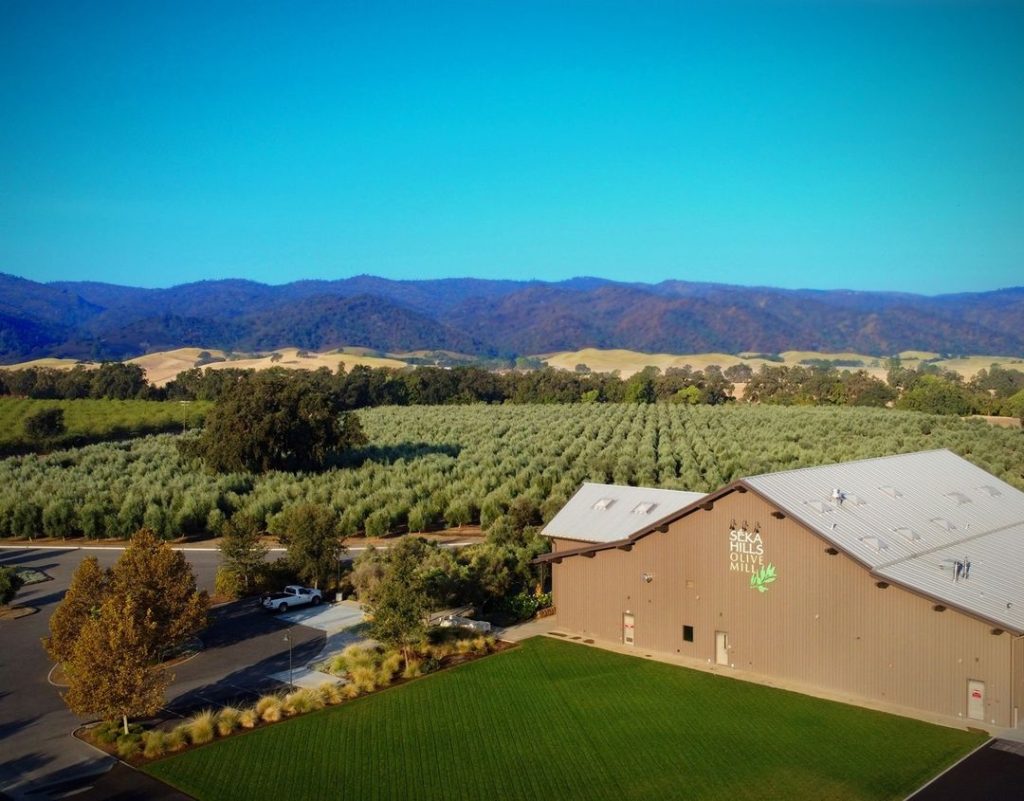
Séka Hills farms 3,000 acres, both conventionally and organically. They select crops to grow that will help conserve the local environment and are naturally suited to the area’s soils and climate. Olive pomace, the byproduct of olive oil production, is collected from the Séka Hills Olive Mill and sent to a local composting facility or cattle feed operation.
Around 2010, the Tribe started focusing on ways to utilize 82 acres of lesser-quality Class 3 soils. (Class 3 soils have severe limitations that reduce the choice of plants or require special conservation practices or both.) They worked with the research and development team at U.C. Davis to determine the best way to utilize the land and decided to grow olives on the land. Olives thrive in the hot climate, only use a third of the water that almonds and other nuts need, and are drought-tolerant—a good fit for California’s increasingly dry seasons.
Rangeland
They graze nearly 1,000 head of cattle across thousands of acres of fields using the principles of regenerative agriculture to encourage the growth of native grasses. These grasses play an important part in the ecosystem, sequestering carbon in their root systems and helping mitigate fire risk by maintaining the grasslands. During the driest months, the cattle are moved to a less drought-prone area of the state to leave food for wildlife.
Water Resources
Water is a precious resource and they are vigilant about preventing waste, employing the highest efficiency irrigation and conservation systems on all Yocha Dehe lands. Teaming up with leading federal agencies, the Tribe is working to curb erosion that can harm local waterways by restoring riparian land banks, installing cross fencing, and improving water distribution using solar pumps. Also, the olive juice and wash water (the water used to clean olives) generated at the Tribe’s Séka Hills Olive Mill is collected and used to irrigate farmland.
Séka Hills’ Products
The Yocha Dehe Wintun Nation is proud to share the bounty of the Capay Valley, and we’re proud to carry great-tasting foods from a producer doing great things for the planet. We recently started stocking our shelves with Séka Hills’ Arbequina Olive Oil, Wildflower Honey, and Beef Jerky.
Arbequina Olive Oil
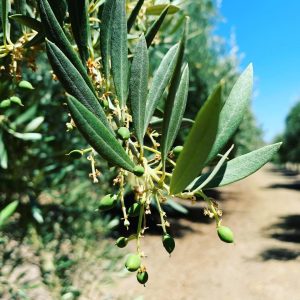
Starting with 82 acres of olives in 2010 to test the viability of growing olives on the land, they’ve now expanded to over 500 acres of olive groves. They’ve also expanded their plantings now grow many different varietals. In 2012 they realized that the transportation of the olives to another mill was not a good long term solution for sustainability or for the final quality level of the olive oil they produced. They invested in state-of-the-art machinery from Florence to process the olives on-site and improve the oil’s quality, and also act as a resource to other farmers in the area who now had access to a high capacity olive mill.
The Arbequina Olive Oil that Séka Hills produces has an exceptional flavor profile. This ripe apple, fruity aroma, harmonious oil has pleasant pungency with a soft bitterness. Smooth, nutty and grassy with notes of nettle, it is a versatile, everyday EVOO. It’s as excellent for finishing soups or drizzling on bruschetta. It’s one of Deli Managing Partner Grace Singleton’s very favorite oils on our shelves! As she says:
This oil hits all of the different highlights that I enjoy, without any of them overwhelming the others. From the first sip, I experience a wonderful silky texture with some notes of almond and hazelnut, it progresses with an herbaceous bitterness that wakes up my palate, and then has just a little spiciness on the finish. It’s bold enough to stand up to more flavorful foods, but not so over the top that it limits using it for more subtle flavors. I love using it on pasta with some freshly ground 5-Star Pepper or drizzling a little over roasted root vegetables.
I’ve also been making radish salads lately using beautiful purple daikons from Tantré Farm. I combine that with the Séka Hills Arbequina Olive Oil, a little agrodolce vinegar, some seeded and chopped tangerines (save any of the juice that accumulates when chopping and add it to the mix), coarse sea salt, and freshly ground Elephant Valley Black Pepper. I like to serve it on a bed of fresh greens from Goetz Farm—in the early spring they have the most amazing butter lettuce.
This video from Civil Eats TV shows how the Yocha Dehe Wintun Nation is reclaiming its ancestral land with their olive crops and oil production.
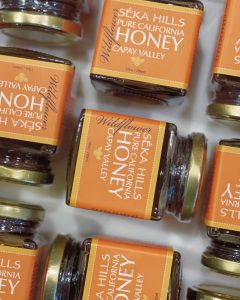 Wildflower Honey
Wildflower Honey
The Wildflower Honey from Séka Hills is produced from the thousands of hives located across the rolling hills and fields of their land in the Capay Valley. An extensive mix of wildflowers—in part, redbud, rose clover, and California lilac—lends this honey an incredibly rich, distinctive flavor.
This is a thick honey that lends itself to be a bit chewy and crystalline in texture, with an almost smoky flavor. It has a deep caramel color and a complex malty, smoky, mineral flavor that will stand up well to a lapsang souchong tea or give a wonderful depth of flavor drizzled over berries with yogurt. For an excellent mid-afternoon snack, Grace recommends “a warm piece of fresh sliced sourdough bread, topped with your favorite butter (I love the Beurre de Baratte), and drizzled with honey—it’ll brighten your day!” It’s one of Ari Weinzweig’s favorites, too—he enjoys a spoonful straight from the jar before heading out for a run!
Beef Jerky
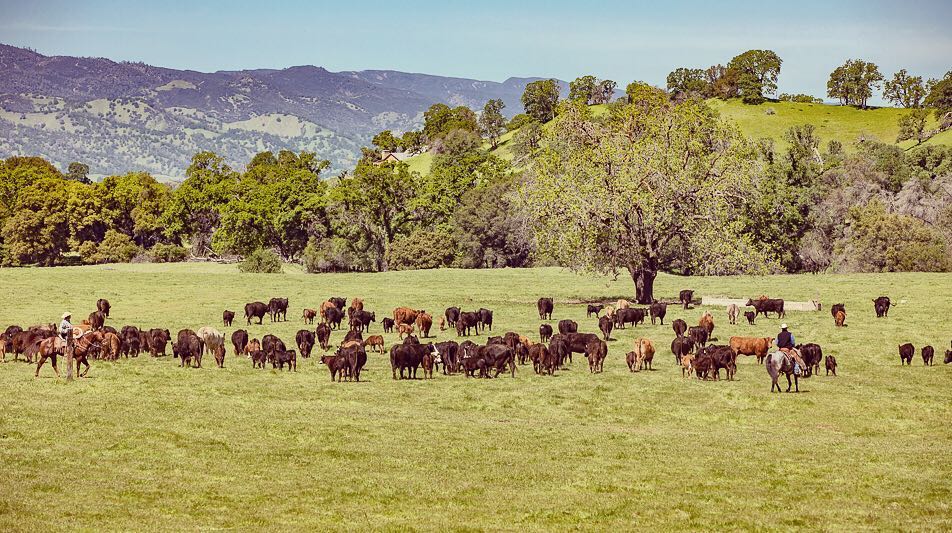
Allowing their cattle to range over rolling hills in the winter and graze lush meadows in the summer produces the delicious and flavorful meat Séka Hills uses in their Beef Jerky. It has just the right balance of the classic firm, dry jerky texture with a bit of marbled fat and a rich, flavorful finish. We’re not exaggerating when we say it’s the best jerky we’ve ever had. We carry both their classic Original Beef Jerky and their Peppered Beef Jerky. Either way, it makes a perfect on-the-go snack.

